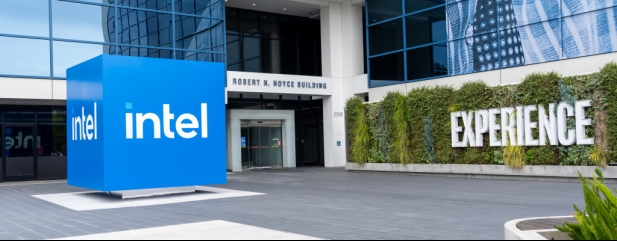Archived article
Please note that tax, investment, pension and ISA rules can change and the information and any views contained in this article may now be inaccurate.
Why Intel’s blocked Israeli chip deal could pose threat to technology M&A

US technology firm Intel (INTC:NASDAQ) has pulled the plug on plans to acquire Israeli chip maker Tower Semiconductor after the deal failed to get regulatory approvals from Chinese authorities, a move that ups the ante in the technology battlefield between Washington and Beijing.
China’s regulator – the SAMR (State Administration of Market Regulation) – approves mergers if one of the companies has significant business interest in the country. Intel operates factories in China, and the country is one of its biggest markets. California-based Intel made almost $23 billion of revenue from China in 2021.
While the parties involved did not communicate any further details about the regulatory issues that tanked the deal, Reuters has reported that China failed to give the required approvals in retaliation against Washington’s export restrictions on advanced microchip technology.
The clash between the world’s leading superpowers over technology intellectual property has been bubbling away for over a year, and China’s latest move could hint at Beijing’s SAMR becoming an increasingly important actor in major acquisitions in future.
And Intel’s experience suggests a growing risk for the M&A ambitions of other US tech firms which could be caught up in the growing enmity between the two nations.
In September 2022, the US Chips and Science Act was signed into law, prohibiting US chip companies from getting financed to build semiconductor plants in China for 10 years. In August 2023, US president Joe Biden escalated powers to block scuttle involving semiconductors, quantum computing technology and artificial intelligence systems in ‘certain countries of concern’.
With the Tower acquisition, Intel CEO Pat Gelsinger had envisioned investing more in the foundry market, a fast-growing segment of the semiconductor industry dominated by Taiwan Semiconductor Manufacturing Company (0981:HK). It forms part of Gelsinger’s strategy to accelerate Intel’s revenue growth and improve profits quality.
In 2022, Intel reported a 20% drop in revenue to $63 billion and operating profit collapsed, from a little more than $22 billion in 2021 to $2.3 billion.
Stuart Pann, the senior vice president and general manager of Intel Foundry Services (IFS), said in a statement that since its launch in 2021, IFS has made significant advancements toward becoming the second-largest global external foundry by the end of the decade.
Intel plans to go beyond traditional wafer manufacturing and include ‘packaging, chipset standards, and software’.
Intel stock, which has rallied 24% in 2023, has lost around 10% since the start of August, trading at $33.14, valuing the company at approximately $139 billion.
Important information:
These articles are provided by Shares magazine which is published by AJ Bell Media, a part of AJ Bell. Shares is not written by AJ Bell.
Shares is provided for your general information and use and is not a personal recommendation to invest. It is not intended to be relied upon by you in making or not making any investment decisions. The investments referred to in these articles will not be suitable for all investors. If in doubt please seek appropriate independent financial advice.
Investors acting on the information in these articles do so at their own risk and AJ Bell Media and its staff do not accept liability for losses suffered by investors as a result of their investment decisions.
Issue contents
Feature
Great Ideas
News
- Market faces up to ‘5% world’ ahead of Powell’s Jackson Hole appearance
- Why Intel’s blocked Israeli chip deal could pose threat to technology M&A
- Hotel groups Dalata and PPHE look to benefit from strong summer trading trends
- Strong domestic economy and improving balance sheet see Bank of Georgia shares surge
- VinFast zooms on to US market as investors pick holes in Tesla’s China strategy
- Barbenheimer can’t even save Everyman Media with the shares down 30% so far in 2023
- Analysts cautious after a 50% AI-driven rally in Salesforce shares

 magazine
magazine








